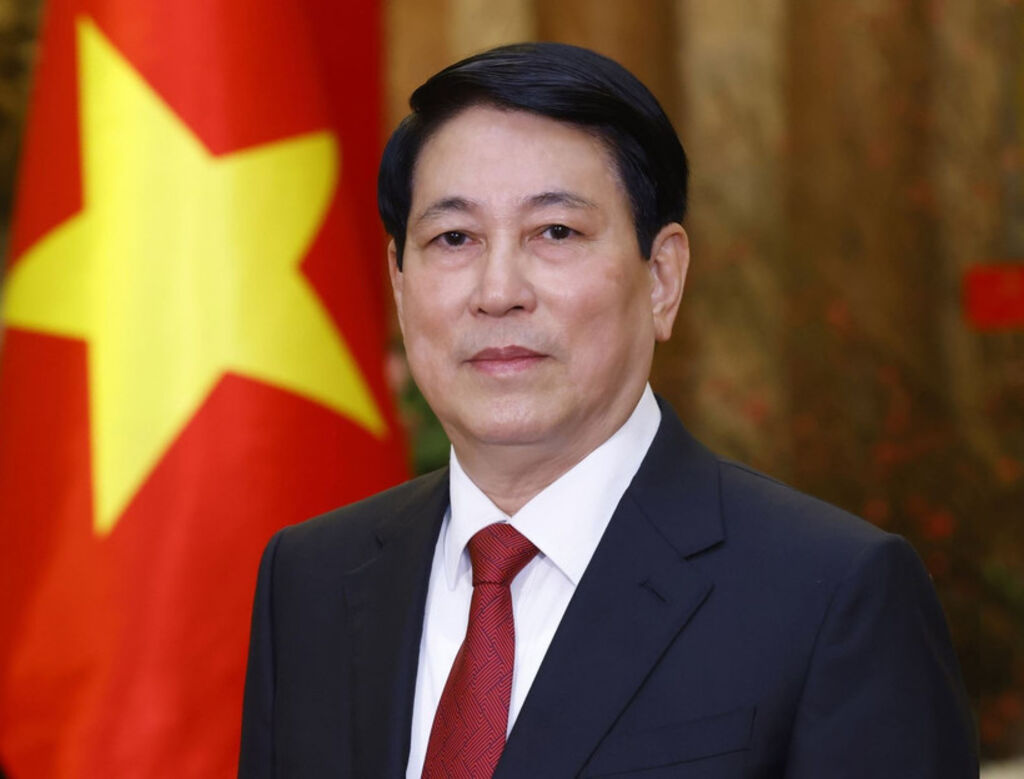 |
| President Luong Cuong__Photo: VNA |
President Luong Cuong has penned an article on the occasion of the 80th founding anniversary of the diplomatic sector (August 28, 1945-2025).
The Vietnam News Agency (VNA) is honored to introduce the full translation of the article:
VIETNAMESE DIPLOMACY - 80 YEARS OF BUILDING AND GROWING WITH THE NATION
Luong Cuong, member of the Politburo, President of the Socialist Republic of Vietnam
Following the successful August Revolution, on August 28, 1945, President Ho Chi Minh signed a decree establishing the Provisional Government of the Democratic Republic of Vietnam, in which he decided to found the Ministry of Foreign Affairs – officially marking the birth of modern Vietnamese diplomacy. It was a great honor for Vietnamese diplomacy to be directly guided, led and directed by President Ho Chi Minh as the first Foreign Minister of the new Vietnam. Over the past 80 years of building and growing, under the leadership of the Party and President Ho Chi Minh, Vietnamese diplomacy has always upheld the spirit of serving the Fatherland and the people, making great contributions to the revolutionary cause of the nation.
Vietnamese diplomacy in the struggle for national liberation, reunification
When the country had just gained independence, it immediately faced a situation likened to “a thousand-weight hanging by a thread”, threatened from both inside and outside. The diplomatic sector adopted wise, bold and skillful decisions to safeguard national independence and protect the fledgling revolutionary government. The Preliminary Agreement of March 6, 1946 and the Provisional Agreement of September 14, 1946 signed with France were “exemplary diplomatic moves”, implementing the strategy of “compromise for advancing,” aiming to steer the nation through a perilous period, avoiding simultaneous confrontation with multiple enemies, while preserving independence and protecting the young revolutionary government; they gave us more time to consolidate forces in preparation for the later struggle against French colonialism. Furthermore, the Preliminary Agreement and the Provisional Agreement were the very first international legal documents signed between Vietnam and France, marking our significant political victory that compelled France to recognize the Government of the Democratic Republic of Vietnam. Under the brilliant leadership of President Ho Chi Minh, Vietnam’s nascent diplomacy achieved its first resounding triumph.
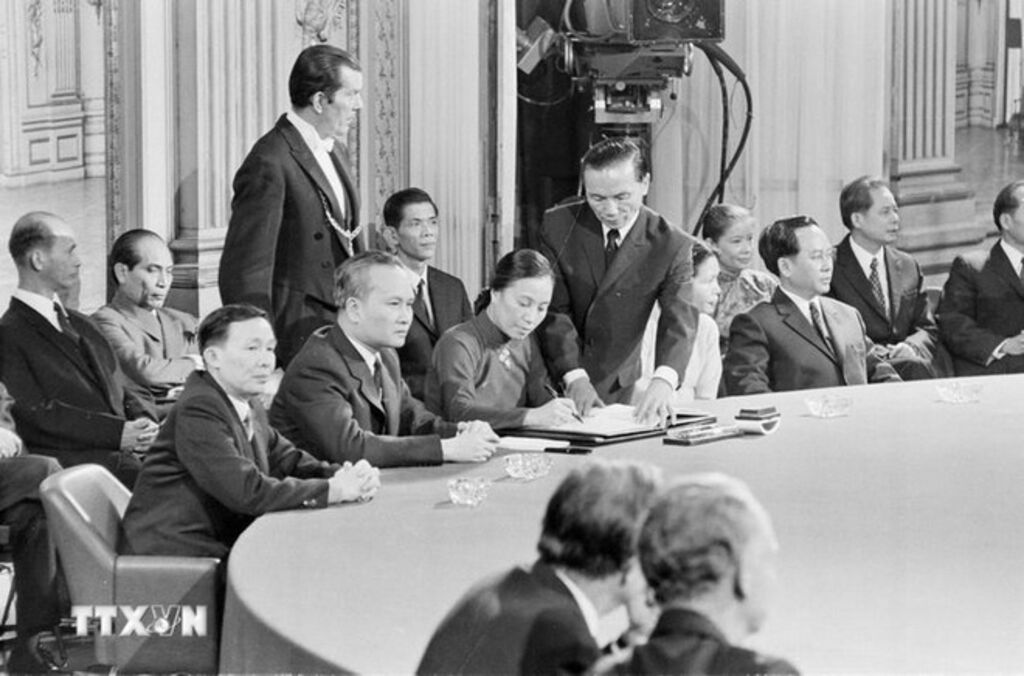 |
| Minister of Foreign Affairs of the Provisional Revolutionary Government of the Republic of South Vietnam Nguyen Thi Binh signs the Agreement on Ending the War and Restoring Peace in Vietnam (Paris Peace Accords) on January 27, 1973 in Paris, France__Photo: VNA |
Entering the protracted resistance war against French colonialists, the central task of diplomacy was to help the country escape “isolation”, win international recognition and support, and provide strong backing to the military front. Through tireless efforts, diplomacy contributed to building a fighting alliance with Laos and Cambodia; establishing relations with Thailand, Myanmar, Indonesia and India; and, crucially, prompting China, the Soviet Union and many other socialist countries to recognize and set up formal diplomatic ties with Vietnam. These important steps created a big rear for the frontline, linking the Vietnamese revolution with the world revolution and securing tremendous assistance for our people’s struggle. At the same time, diplomacy worked closely with the military, leveraging major battlefield victories to strengthen power on the negotiation table. Following the victory that “resounded across the five continents and shook the globe” at Dien Bien Phu, France was forced to sign the 1954 Geneva Accords on the cessation of hostilities and restoration of peace in Indochina. This triumph abolished the French colonial rule, recognized the independence of Vietnam, Laos and Cambodia, and officially ended colonialism in Indochina. The North was completely liberated, and the Vietnamese revolution moved into a new phase: building socialism in the North while fighting for the liberation of the South and reuniting the nation. The Geneva Accords marked a historic milestone, demonstrating the remarkable maturity of Vietnamese diplomacy on the international stage. As President Ho Chi Minh affirmed: “The Geneva Conference has ended. Our diplomacy has won a great victory”.
Having just gone through nine years of fierce resistance against French colonialists, the entire nation once again had to enter the resistance war against American imperialism. Once more, history entrusted diplomacy with the mission of standing side by side with other revolutionary forces to fight and ultimately prevail over a vastly more powerful adversary. In the outline report on the situation and tasks on the diplomatic front (May 1969), our Party affirmed that alongside the military and political fronts, “diplomacy is an important front of strategic significance.” Diplomacy succeeded in mobilizing huge spiritual and material support from socialist countries and progressive peoples worldwide, notably the Soviet Union, China, Laos, Cambodia and Cuba... At the same time, diplomacy contributed to creating an unprecedented mass international movement of solidarity with, and support for the just struggle of the Vietnamese people, fueling the anti-war movement within the United States itself. Together with their fellows at home, overseas Vietnamese also demonstrated great patriotism, participating in the resistance war in various forms. Many volunteered to return to the homeland, contributing their knowledge and assets to the national salvation. In the history of the 20th century, few national struggles garnered such widespread and powerful support, both domestically and internationally, as that of the Vietnamese people.
In the historic confrontation between a nation considered “small and weak” and the world’s No. 1 superpower, Vietnam’s diplomacy coordinated smoothly and closely with the military and political fronts, opening the situation of “fighting while negotiating”. This art reached its peak, wherein military and political victories laid the foundation for diplomatic negotiations, while diplomatic efforts, in turn, helped amplify the achievements on the battlefield and the political front. With our great victories on the battlefields, especially the victory of “Dien Bien Phu in the air” in December 1972, the US was forced to sign the Agreement on Ending the War and Restoring Peace in Vietnam (Paris Peace Accords), creating an important premise for our people to complete the struggle for national liberation and reunification in the spring of 1975.
During the period of post-war recovery and national development, diplomacy participated in both rebuilding the country and fighting to protect the borders and territorial integrity of the Fatherland. In the context of economic blockade and embargo and political isolation, diplomatic efforts strengthened relations with countries under the socialist system, fought to protect the northern border and maintain the southwestern border, and helped the Cambodian people escape the genocide. During this period, we also expanded foreign relations, becoming members of many multilateral organizations and forums such as the Non-Aligned Movement and the United Nations. With the motto "more friends, fewer enemies", diplomacy took the lead in gradually removing difficulties, unlocking new avenues in foreign affairs, laying the first bricks for expanding relations in the later stages of Doi Moi (Renewal) and integration.
Diplomacy serves Doi Moi process, international integration
Entering the Doi Moi period, the first and foremost task of Vietnam’s diplomatic sector was to break the siege and embargo, restore and normalize relations with other countries. Embracing a renewed mindset, the sector promptly adjusted its strategy, expanding ties with all nations in the world, regardless of political or social systems, and implemented a policy of friendship, cooperation, and peaceful coexistence for development. With proactive steps, we improved relations with Southeast Asian countries, restored friendly and neighbourly relations with China, normalized ties with the US and developed Western countries, and joined the Association of Southeast Asian Nations (ASEAN). In less than 10 years after the launch of Doi Moi, the foreign affairs situation has changed from confrontation to cooperation, from isolation to having stable and friendly relations with neighboring countries and major powers.
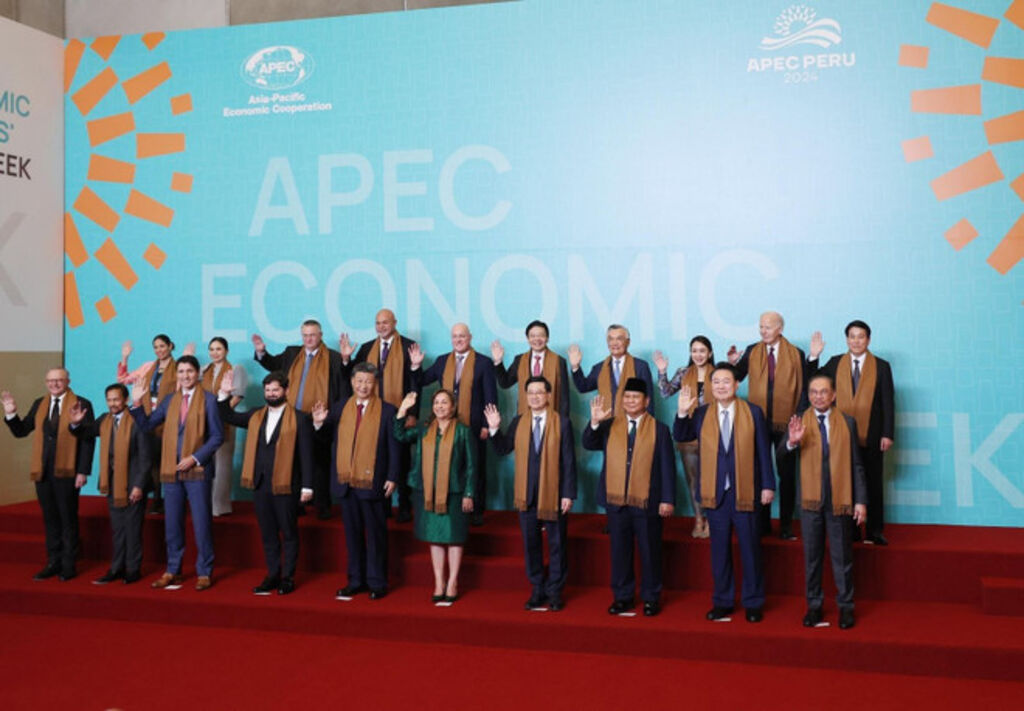 |
| President Luong Cuong and leaders attend the 31st APEC Economic Leaders’ Meeting in Lima, Peru__Photo: VNA |
On the basis of the achievements in the initial stage of Doi Moi and international integration, Vietnam’s diplomacy entered a new stage of expanding foreign relations with the policy of "being a friend, a reliable partner and a responsible member of the international community", "multilateralizing and diversifying relations". If before the Doi Moi process, we only had relations with more than 100 countries, by 2025 we had established official diplomatic ties with 194 countries. The relations are increasingly deeper and more sustainable, especially the formation of a framework of relations with 38 countries, including 13 comprehensive strategic partners, 10 strategic partners and 15 comprehensive partners.
After nearly 40 years of Doi Moi, we have created a much opener and more favorable foreign relations landscape than ever before, laying a solid foundation for the cause of national construction and development.
In the process of renovation and integration, diplomacy has closely coordinated with national defense and security to build a peaceful and friendly border belt with neighboring countries. Vietnam has completed border demarcation and marker planting on the land borders with Laos and China; achieved positive results in demarcation and marker placement with Cambodia; and signed agreements and treaties on maritime boundary delimitation with China (in the Gulf of Tonkin) as well as with Thailand, Indonesia, and others. For complex territorial border issues, Vietnam has firmly struggled against acts infringing on its sovereignty and territory, while upholding the banner of peace and cooperation, actively exchanging and negotiating with relevant countries to manage disagreements and seek fundamental, long-term solutions to disputes through peaceful means based on international law. Through these efforts, Vietnam has established a peaceful, friendly border belt and a cooperation mechanism for resolving border and territorial issues.
At the same time, Vietnam has gradually taken a proactive approach to global integration, from economic integration to comprehensive, in-depth integration across fields. International integration and economic diplomacy have leveraged a favorable global environment and mobilized external resources, transforming Vietnam from a besieged, embargoed, underdeveloped economy into a rapidly rising economy and a key link in the global economy. From economic and trade relations with nearly 30 countries and territories, Vietnam now has such ties with over 230; total import-export turnover has reached nearly 800 billion USD, placing the country among the world’s top 20 trading economies; and it has attracted over 500 billion USD in foreign direct investment (FDI), becoming a leading developing country in attracting foreign investment. Vietnam has become an increasingly important link in the global economy and strengthened its position in global production chains through 17 Free Trade Agreements (FTAs), including many new-generation ones, and more than 500 bilateral and multilateral agreements.
Diplomatic efforts have helped elevate Vietnam from a besieged, isolated country to an active, responsible member of over 70 international and regional organizations, including all mechanisms playing key roles in global governance, such as the United Nations (UN), the Association of Southeast Asian Nations (ASEAN), the World Trade Organization (WTO), the Asia-Pacific Economic Cooperation (APEC), and the Asia–Europe Meeting (ASEM). Vietnam’s multilateral diplomacy has matured significantly, undergoing a qualitative transformation, from early-stage membership and participation to proactive and active contributions to common issues, and now gradually playing leading and shaping roles in many mechanisms. Vietnam has participated in initiating and co-founding numerous new cooperation frameworks such as ASEM, the ASEAN Defense Ministers’ Meeting Plus (ADMM+), and the Comprehensive and Progressive Agreement for Trans-Pacific Partnership (CPTPP); successfully held many international responsibilities, including non-permanent member of the UN Security Council and member of the UN Human Rights Council; simultaneously participated in six out of seven key UNESCO governing mechanisms; and successfully hosted major international conferences such as the ASEAN Summits, the APEC Economic Leaders' Meeting and the US–DPRK Summit. Vietnam has also proposed new initiatives and documents, notably the United Nations Convention against Cybercrime (the Hanoi Convention), and engaged increasingly in UN peacekeeping, humanitarian assistance, and rescue operations. Vietnam’s voice, initiatives, and rational, empathetic approaches have earned widespread recognition and support from the international community.
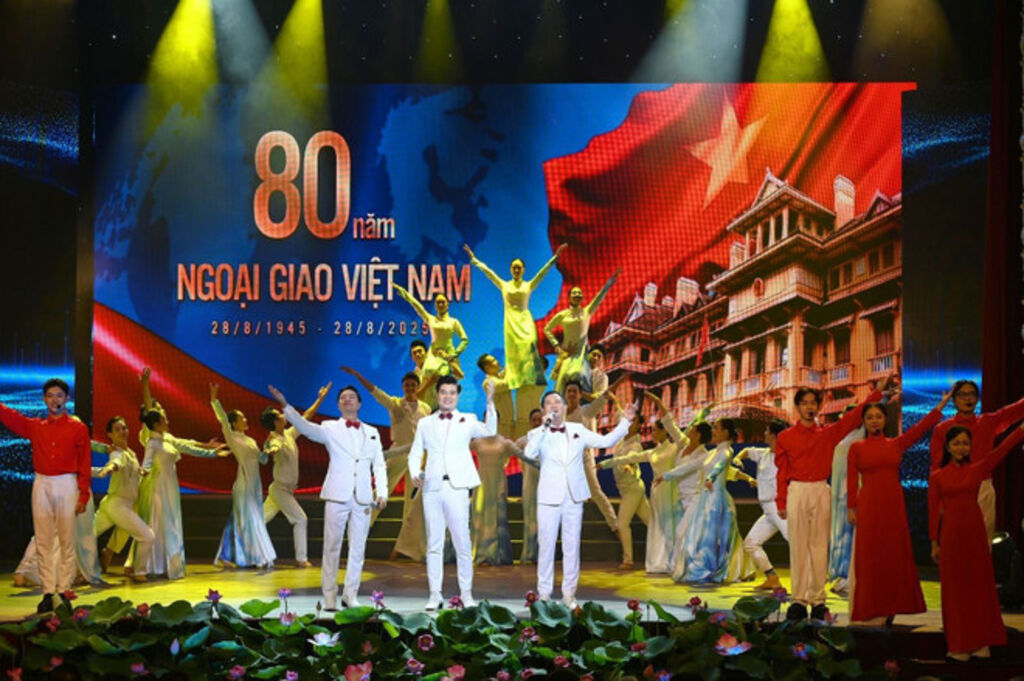 |
| The Department of Foreign Affairs of Ho Chi Minh City on August 22 holds a ceremony to celebrate the 80th Anniversary of the establishment of the diplomatic sector (August 28, 1945 - 2025) and the 50th anniversary of the establishment of the city's Department of Foreign Affairs__Photo: VNA |
The areas of foreign affairs are also increasingly expanding, contributing to strengthening the nation's strength, serving socio-economic development and enhancing the country's position. The Party and State always pay attention to and identify overseas Vietnamese as an inseparable part of the Vietnamese nation. The community of 6 million Vietnamese people abroad is growing stronger, connecting with the country, making important contributions to the country's development. Citizen protection work has actively safeguard the safety, rights and legitimate interests of Vietnamese citizens and businesses, especially in natural disaster-hit and conflict areas. Cultural diplomacy has promoted national cultural values and mobilized new resources for development; Vietnam has a total of 73 heritage sites and titles recognized by UNESCO. External information work has strongly promoted the image of Vietnam’s land, people, culture, and achievements through diverse and creative content and methods.
During the 80-year journey of construction and development, under the sound leadership of the Party and President Ho Chi Minh, Vietnamese diplomacy stood alongside the nation in the struggle for national independence, freedom, and happiness of the people. From a poor, backward, war-torn country, Vietnam now stands as a nation of dynamic development and successful international integration. From a country with no name on the world map, Vietnam has affirmed its role as a proactive, active and responsible member of the international community. As the 13th Party Congress and late Party General Secretary Nguyen Phu Trong stated: “Our country has never had such fortune, potential, position and international prestige as it does today."
In that challenging but also glorious journey, Vietnamese diplomacy is proud to always be present on the front line along with forces of the Vietnamese revolution, properly implementing the motto of "coordinated combat, collective achievements". A comprehensive and modern diplomacy with three pillars of Party diplomacy, State diplomacy and people-to people diplomacy has created a combined strength to bring the Vietnamese diplomatic service from one victory to another. The growth and achievements of revolutionary diplomacy over the past 80 years are a crystallization of the tradition of peace-loving diplomacy from the thousands of years of nation-building and defense history of our ancestors and Ho Chi Minh's diplomatic thought, while affirming the nation's historical and cultural stature, and reflecting the country's new position and strength.
Vietnam's diplomacy is not only recognized by the Party, State and people but also highly regarded by international friends and partners. United Nations Secretary-General Antonio Guterres commented that Vietnam's diplomacy has shown that a country can overcome war, promote peace and become a pillar of multilateralism, and is a bright spot in international relations that other countries need to learn from. Vietnam's school of diplomacy, which is both principled and flexible, and peace and justice loving, has contributed to enhancing the country's position and image on the international arena.
Historical lessons remain valuable
The glorious 80-year history of revolutionary diplomacy has left many great lessons that remain valuable today.
First and foremost is the lesson of the Party's absolute and unified leadership, imbued with Ho Chi Minh's diplomatic thought. The Communist Party of Vietnam is the organizer and leader of every victory of the Vietnamese revolution. With its mettle, wisdom, prestige and leadership capacity, our Party has been sensitive to the situation, timely adapting its thinking, and making sound decisions to adjust foreign policies, guidelines and measures appropriate to each historical period. From its early days, Vietnamese diplomacy was guided and led by President Ho Chi Minh - the architect of modern Vietnamese diplomacy, the great teacher of generations of diplomatic cadres. Ho Chi Minh's diplomatic thought will always be the compass, the torch illuminating the path for Vietnam's foreign affairs.
That is the lesson of combining national strength with the strength of the times, between internal strength and external strength, in which internal strength is fundamental and long-term, and external strength is important and breakthrough. We have strongly promoted the country's internal strength, at the same time linked with the common cause of humanity, making the most of external strength to combine and supplement internal strength. Over the past 80 years, although the world situation has always changed rapidly and complicatedly, Vietnam's foreign policies have always been adjusted to adapt to the situation and major trends of the times.
That is the lesson of independence, self-reliance and resilience associated with cooperation, diversification, and multilateralization of external relations. Independence and self-reliance have been prominent, consistent principles throughout the revolutionary path in general and foreign policy in particular. President Ho Chi Minh affirmed: “Independence means we take control of all our own affairs, without any interference from outside”. In that spirit, Vietnam maintains full autonomy in policymaking, taking independence and self-reliance as the foundation for fostering solidarity, mobilizing support while selectively learning from international experiences.
That is the lesson of “using the invariables to cope with variables”, “our principles must be firm, but our strategies must be flexible”. The “invariables” are national independence, freedom, the sovereignty and territorial integrity of the country, and the steadfast pursuit of building the country on the socialist path. The “variables” are approaches used to achieve those goals — flexible and adaptive in strategy depending on the issue, timing and partner.
That is a lesson in valuing and properly handling relations with major countries and building and maintaining friendly and stable ties with neighboring countries. Our Party clearly recognizes the importance of major countries in shaping global order and trends, thereby adopting a balanced and harmonious approach of both cooperation and struggle. At the same time, we always maintain friendly, stable and long-term sustainable relations with neighboring countries, upholding the tradition of “a close neighbor is better than a distant relative” of our ancestors to have friendly and stable relations with neighboring countries, especially those sharing a common border.
Lastly is the lesson of personnel work, "the root of all tasks". President Ho Chi Minh and senior diplomats are shining examples of patriotism, political mettle, and diplomatic skills and style that are admired by the people and respected by international friends. Generations of diplomatic cadres who are firm in political mettle, always absolutely loyal to the Party, to the interests of the nation, and wholeheartedly serve the Fatherland and the people, are the decisive factors for all diplomatic victories in the international arena. Vietnamese diplomacy is proud to have had many eminent diplomats, outstanding disciples of President Ho Chi Minh, such as Pham Van Dong, Le Duc Tho, Nguyen Duy Trinh, Xuan Thuy, Nguyen Thi Binh, Nguyen Co Thach. These are diplomats shaped by the realities of revolution, who embodied Vietnam's courage and wisdom, earning the admiration of friends, partners, and even opponents.
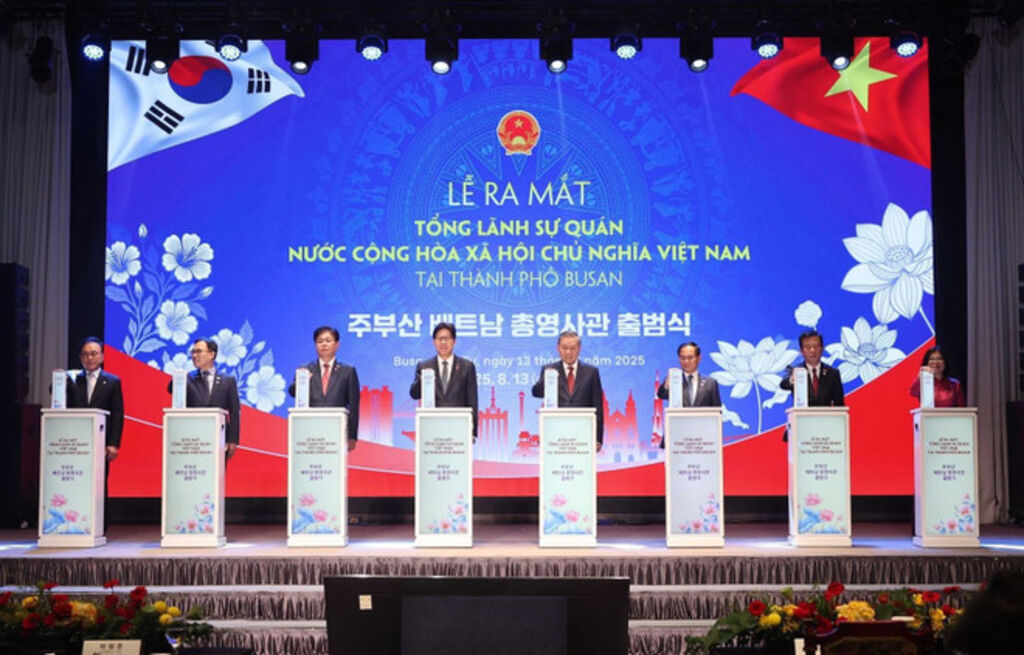 |
| Party General Secretary To Lam and delegates are at the launching ceremony of the Consulate General of Vietnam in Busan city, the Republic of Korea on August 13, 2025__Photo: VNA |
Diplomacy in the era of nation’s rise
The world is facing epochal turning points. Each turning point in history can become an opportunity or a challenge for countries depending on the preparation and readiness of each country. The achievements of 80 years of struggle for national liberation, nation-building and defense are a solid foundation for our nation to enter a new era, and realize the two strategic goals for 2030 and 2045 set by the 13th National Party Congress.
History has shown that the country’s geo-strategic factors, security, and prosperity are closely linked with external environment. How to position and enhance the nation's standing in a way that is most beneficial for the nation and people in the regional and world strategic landscape is always a constant concern of Party and State leaders and those working in the diplomacy sector.
During the most challenging years of the struggle for national liberation, with courage, willpower, and wisdom, Vietnamese diplomacy overcame many hardships and obstacles to achieve resounding victories. If, during wartime, military victories laid an important foundation for diplomatic triumphs; diplomacy was a “front” parallel to politics and military, then today, the Vietnamese diplomacy is equipped with the country’s position and power after 40 years of renewal, the solidarity and support of the entire nation. In the current global integration context, external affairs must play a pioneering role, performing well the "important, regular" tasks together with national defense and security to protect the Fatherland early, from afar, build and develop the country quickly and sustainably. With this heavy but also very glorious responsibility, diplomacy in the new era needs to focus on the following major orientations:
First, it must always firmly uphold national interests, placing the country in the right direction of the times. According to President Ho Chi Minh, diplomacy must always serve the interests of the nation. National interests are the "compass" of foreign policy, the unchanging goal of foreign affairs to respond to the rapidly changing, complex and unpredictable situation in the world. The highest interests are to firmly protect independence, sovereignty, unity and territorial integrity; protect the Party, State, people and socialist regime; maintain a peaceful, stable and favorable environment for national development; protect the cause of renewal, industrialization and modernization; protect political security, social order and safety and national culture. However, ensuring the highest national interests must be based on equality, cooperation, mutual benefit, and joint efforts for peace, national independence, democracy and social progress, based on the fundamental principles of the United Nations Charter and international law. National interests are in harmony with the common interests of the international community, contributing to properly resolving the relationship between the nation and the times, both demonstrating Vietnam's responsibility and gaining international support.
Second, it is important to continue to properly follow the foreign policy of independence, self-reliance, peace, cooperation and development; multilateralization and diversification of relations; active and proactive global integration in the period of renewal. “Independence, self-reliance” and “multilateralization and diversification” have a dialectical and consistent relationship in Vietnam’s foreign policy. Independence and self-reliance are based on one’s own strength and self-reliance in setting one’s own policies and strategies. Recent changes in many regions of the world have further affirmed the correctness of Vietnam’s “independence and self-reliance” policy. In addition, the major issues facing the world such as natural disasters, epidemics, climate change, cyber security, etc. also show the benefits of “multilateralization and diversification” of foreign relations, because no country, no matter how powerful, cannot cope with the current multidimensional challenges on its own. Internal strength is the main resource, the root of national strength, but it is necessary to take advantage of all external resources to increase internal strength, to best ensure national security and development.
Third, it is necessary to make international integration a driving force, creating momentum and seizing new development opportunities for the country. Diplomacy serving development is the focus, taking the lead in connecting internal resources with external resources; identifying and seizing opportunities from new trends in the world in science - technology, innovation, renewable energy development, strategic infrastructure, digital transformation, green transition, etc. At the same time, diplomacy must open up cooperation with leading partners, especially high-quality resources in finance, technology, and management to create new momentum, new breakthroughs and new achievements for national development. With the advantage of an open foreign policy situation, diplomacy needs to take advantage of good foreign relations to promote economic agreements; clear obstacles, maximize the benefits of trade and investment agreements for citizens, localities and businesses.
Fourth, it should uphold the combined strength of all areas of foreign affairs. The new era also requires a new approach to foreign affairs, shifting from merely receiving to contributing, from learning to leading, from economic integration to comprehensive and extensive integration, from a follower country to a pioneering one ready to take on new responsibilities. The new position and power not only creates conditions for us to participate more and contribute more actively to solving common problems, but also allows us to uphold our core and leading role in important issues and mechanisms of strategic significance, in line with the country's interests. The new position and power also require us to uphold the "soft power" of the nation, commensurate with the country’s historical and cultural stature, political and economic standing.
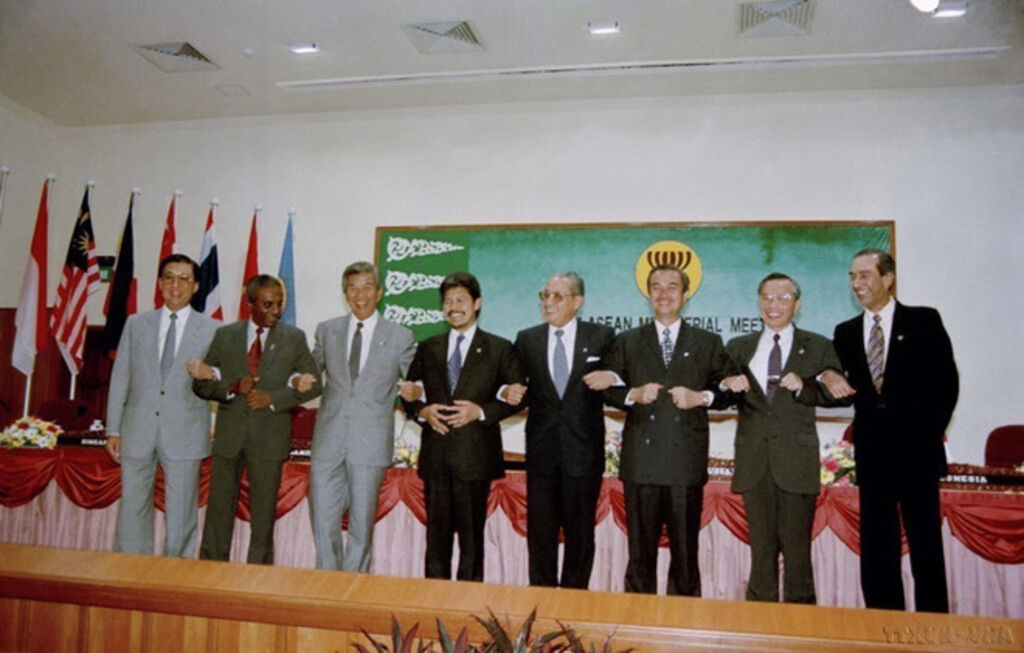 |
| Foreign Minister Nguyen Manh Cam (second, from right), ASEAN Secretary General and ASEAN Foreign Ministers at the meeting to admit Vietnam as the seventh official member of ASEAN on July 28, 1995, in the capital Bandar Seri Begawan, Brunei__Photo: VNA |
Fifth, it is essential to build a strong diplomatic sector, worthy of past generations and commensurate with the new era. During the struggling years of the revolution, we always had outstanding diplomats, who became shining examples of patriotism, self-learning spirit, political mettle, diplomatic style and artistry, recognized and respected by international friends. The new era requires the building of a comprehensive, modern, professional diplomacy that meets new requirements, deeply absorbs and creatively applies Ho Chi Minh's diplomatic thought. In the new era, foreign affairs officials must be pioneers who dare to think, dare to do, dare to innovate, dare to face difficulties, and act for the interests of the nation.
***
Looking back over the past 80 years, generations of diplomatic cadres have the right to be proud of the tradition, history and glorious achievements of Vietnamese diplomacy, contributing to the glory of the country. The mettle and wisdom of modern Vietnamese diplomacy have been forged through thousands of years of the nation's history, tempered and matured under the Ho Chi Minh era. In the new era, following in the footsteps of their ancestors' heroic traditions, today's generation of diplomats will continue to write golden pages of modern Vietnamese diplomacy, contributing worthily to the journey of bringing the country to "stand shoulder to shoulder with the world powers" as Uncle Ho always wished.- (VNA/VLLF)









